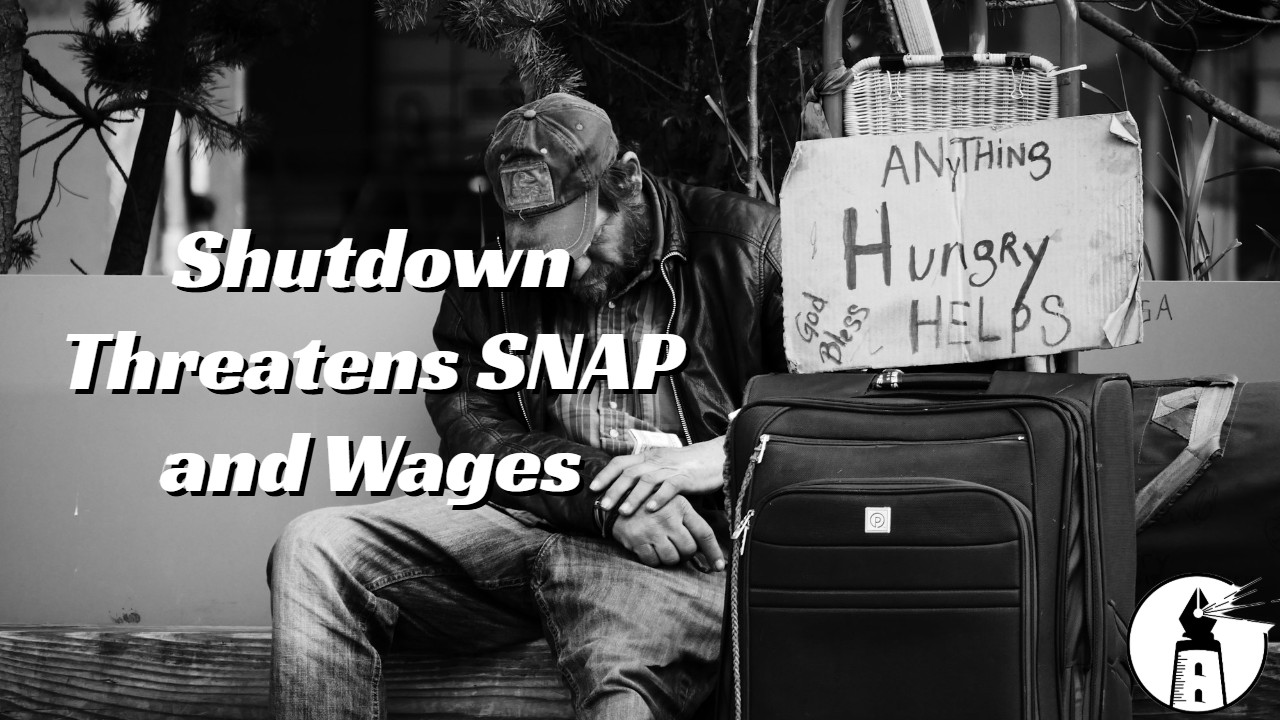A prolonged federal government shutdown is beginning to have ripple effects across the country, raising concerns for millions of Americans who rely on federal paychecks and nutrition assistance programs. As negotiations stall in Washington, key benefits such as SNAP—the Supplemental Nutrition Assistance Program—could soon be interrupted, creating uncertainty for low-income families and government workers alike.
The Growing Impact
According to federal officials, more than 1.4 million government employees have already missed at least one paycheck due to the shutdown. Agencies deemed non-essential remain closed or partially staffed, while workers classified as “essential” continue to report without pay. Meanwhile, states are warning that if the impasse continues, funding for SNAP could run short within weeks, potentially delaying or suspending benefits for millions of households.
The Department of Agriculture, which administers SNAP, has indicated it is reviewing contingency options, but without congressional action to reopen the government, its ability to issue full monthly payments will soon be compromised. The uncertainty has led many families to budget cautiously and seek local food bank assistance ahead of disruptions.
Political Stalemate
The shutdown stems from a spending impasse in Congress, where lawmakers have failed to pass a new budget or continuing resolution to fund the government. While both parties have expressed willingness to negotiate, divisions remain over spending priorities and broader policy riders attached to the funding package.
At the center of the dispute is the current administration’s push to reduce spending on Affordable Care Act (ACA) benefits, including subsidies that help lower-income Americans afford health coverage. Congressional Democrats have opposed these cuts, calling them harmful to families already struggling with medical costs. The disagreement has stalled negotiations and led to the current funding lapse.
Analysts warn that as the shutdown continues, political pressure will intensify from both the public and federal workers demanding a resolution. Past shutdowns have shown that prolonged standoffs can erode public confidence and damage the economy through reduced consumer spending and delayed services.
Broader Economic Concerns
Beyond federal employees and SNAP recipients, the shutdown is affecting contractors, small businesses near federal facilities, and industries that depend on timely government operations—from travel and trade to research and public safety. Economists note that even temporary interruptions in pay or benefits can have lasting consequences for financial stability among working-class Americans.
What Happens Next
Congressional leaders are expected to resume talks this week in hopes of reaching a temporary or long-term funding deal. However, without bipartisan agreement, agencies will remain shuttered and programs like SNAP will remain in jeopardy.
For now, affected families are urged to monitor official updates from the U.S. Department of Agriculture and their state benefit offices. Federal workers can access assistance resources through their unions or local community programs offering short-term relief.
Are you or someone you know affected by the shutdown? Share your experience below or pass this article along to others who might need help finding resources. Staying informed and connected makes all the difference when Washington stalls.
—Greg Collier
Further Reading
- ABC News – Could halt in SNAP benefits, paychecks pressure lawmakers to strike shutdown deal?
- U.S. Department of Agriculture – SNAP: Current Status and Resources
- Congressional Research Service – Federal Government Shutdowns: Causes, Processes, and Effects
- Office of Personnel Management – Guidance for Federal Employees During a Shutdown



